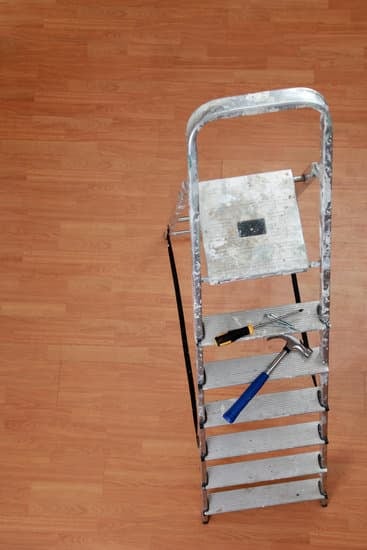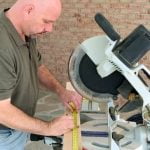Can you write off home improvements as a business expense? This is a question that many homeowners who also run their own businesses often ask. Understanding the potential tax benefits and implications of such deductions is crucial for maximizing savings and minimizing costly mistakes.
In this article, we will delve into the world of home improvements as business expenses, exploring the eligibility criteria, tax laws and regulations, deductible costs, necessary documentation, potential limitations, and expert advice. By examining case studies and examples, we will provide valuable insights into real-life scenarios where home improvements have been successfully written off as business expenses.
Whether you are a freelancer operating out of your home or a small business owner with office space in your residence, join us on this journey to uncover the possibilities and precautions of utilizing this unique tax deduction strategy.
Understanding the Basics
When considering the possibility of writing off home improvements as a business expense, it is important to understand the basics of what qualifies as both a home improvement and a business expense. This section will provide definitions and explanations to help clarify these terms.
Firstly, let’s define home improvements. Home improvements refer to any renovations or additions made to a residential property that enhance its functionality, aesthetics, or value. This can include projects such as remodeling a kitchen or bathroom, installing a swimming pool, adding an extension to the house, or upgrading the HVAC system. It is essential to note that routine repairs and maintenance do not fall under the category of home improvements for tax purposes.
On the other hand, business expenses are costs incurred in running a business that are necessary for its operation or are directly related to generating income. These expenses can range from rent for office space or equipment purchases to marketing expenses or professional fees. To be considered eligible as a business expense, it must have a clear connection to your business activities and be ordinary and necessary in your industry.
Understanding these basic definitions is crucial because claiming home improvements as a business expense requires meeting specific criteria. The next sections will delve deeper into the eligibility criteria for classifying home improvements as deductible costs and examine the relevant tax laws and regulations surrounding this topic.
Eligibility Criteria
Definition of Home Improvements
Before exploring what qualifies as a business expense for home improvements, it is important to understand the definition of home improvements. Home improvements refer to any alterations, additions, or renovations made to a property that enhance its value, functionality, or aesthetics. These can include remodeling a kitchen or bathroom, adding an extension to the house, installing new flooring or windows, or upgrading the heating and cooling systems.
Criteria for Qualifying as a Business Expense
While there is potential for writing off home improvements as a business expense, certain criteria must be met in order for them to qualify. The primary criterion is that the home improvements must be directly related to your business operations. This means that they must serve a specific business purpose and not merely be for personal use.
Additionally, the improvements must be necessary and ordinary expenses for your industry. This means that they should be reasonable and customary expenses that are commonly incurred by other businesses in your field. For example, if you run a daycare center from your home, renovating a portion of your house to create dedicated play areas for children would likely qualify as a business expense.
It is also important to note that the business use of the property must be exclusive and regular. This means that you cannot deduct expenses related to areas of your home that are used solely for personal purposes. However, if you have a dedicated space within your property that is used exclusively for business activities (such as an office or workshop), you may be eligible to write off expenses related to improving that area.
Overall, determining eligibility criteria for writing off home improvements as a business expense requires careful consideration of the direct relationship to the business operations and whether they meet the necessary and ordinary standards set forth by tax laws and regulations. It is recommended to consult with a tax professional or CPA who can provide guidance tailored specifically to your individual circumstances and industry requirements.
Tax Laws and Regulations
When it comes to writing off home improvements as a business expense, it is essential to have a clear understanding of the tax laws and regulations that govern this deduction. The Internal Revenue Service (IRS) provides guidelines and regulations that determine what qualifies as a legitimate business expense for home improvements.
Firstly, it is important to note that the IRS allows deductions for expenses that are necessary and ordinary in carrying out your trade or business. This means that the home improvements must be directly related to your business operations and not personal in nature. Examples of qualifying expenses include renovating an office space in your home, installing new equipment or furniture for business use, or making structural changes to accommodate your business needs.
To further understand these rules, it is crucial to refer to specific tax codes and guidelines provided by the IRS. For example, Publication 587 – Business Use of Your Home provides detailed information about deducting expenses related to the use of your home for business purposes. Additionally, IRS Publication 946 – How To Depreciate Property explains how to depreciate certain property like equipment or improvements used for your business.
It’s worth noting that tax laws evolve over time, so it is imperative to stay up-to-date with any changes or updates from trusted sources such as the IRS website or consult a qualified tax professional. Ensuring compliance with current codes and guidelines will help you accurately identify which home improvements qualify as legitimate business expenses and maximize your deductions accordingly.
Deductible Costs
When it comes to writing off home improvements as a business expense, it is crucial to understand which costs are eligible for deductions. Not all home improvements can be considered business expenses, so it is important to identify those that meet the criteria set by the IRS. This section will provide an overview of deductible costs and examples of home improvements that can potentially be written off as business expenses.
Repairs and Maintenance
One category of home improvements that may qualify as a business expense are repairs and maintenance. These expenses involve fixing or maintaining areas of your home that directly relate to your business operations. For example, if you run a daycare from your home and need to repair the flooring in the playroom, this cost can potentially be deducted as a business expense.
Home Office Expenses
If you have a dedicated space in your home that is used exclusively for your business, you may be able to deduct certain home office expenses. This includes any improvements made to this space, such as renovating or remodeling the area. It is important to note that these improvements must directly benefit your business and cannot be used for personal purposes.
Energy-Efficient Upgrades
Another type of improvement that can potentially be written off as a business expense are energy-efficient upgrades. If you make changes or upgrades to your home with the goal of reducing energy consumption or qualifying for energy-efficiency tax credits, these costs may be deductible. Examples of eligible upgrades include installing solar panels, upgrading insulation, or replacing windows with more energy-efficient options.
Examples of Deductible Costs
To gain a better understanding, here are some common examples of specific deductions related to home improvements:
- The cost of painting the exterior or interior walls of your home if it directly benefits your business.
- Installing security systems, such as cameras or an alarm system, that are primarily used for your business.
- Building or expanding a home office space.
- Installing specialized equipment, such as soundproofing for a recording studio or additional plumbing for a commercial kitchen.
It is important to keep in mind that these examples are not exhaustive, and it is recommended to consult with a tax advisor or accountant to ensure proper documentation and compliance with tax regulations. In the next section, we will delve further into the calculation of the proportion of home improvements that can be written off based on business use percentage.
Business Use Percentage
Determining the proportion of home improvements that can be written off as a business expense is an important step in maximizing tax deductions for small business owners. The business use percentage refers to the portion of your home that is used exclusively for business purposes, and it plays a crucial role in determining the deductibility of home improvement expenses.
Calculating Business Use Percentage
To calculate the business use percentage, you need to measure the square footage of your home office or workspace and divide it by the total square footage of your residence. For example, if your home office measures 200 square feet and your entire home is 2,000 square feet, then your business use percentage would be 10%.
It’s important to note that any room or area used exclusively for personal purposes cannot be included in this calculation. Additionally, if you have shared spaces that are occasionally used for both personal and business purposes, you can only include the portion of those areas used solely for business.
Implications on Deductible Costs
Once you have determined your business use percentage, you can apply it to the total cost of your home improvements to determine how much can be written off as a business expense. For example, if you spent $10,000 on renovating your entire house and your business use percentage is 10%, then you would be able to deduct $1,000 as a business expense.
It’s essential to maintain accurate records regarding what specific improvements were made and how they relate to your business activities. This way, when tax season comes around, you will have all the necessary documentation to support your deductions.
Understanding and accurately calculating your business use percentage is crucial for determining how much of your home improvement costs can be written off as a legitimate business expense. By keeping meticulous records and seeking professional guidance when needed, small business owners can maximize their tax deductions while staying within legal boundaries.
Necessary Documentation
Proper record-keeping and documentation are crucial when it comes to writing off home improvements as a business expense. Without the necessary documentation, you may not be able to substantiate the expenses and could face potential issues with the IRS. Therefore, keeping accurate records is essential in order to maximize your deductions and avoid any problems during an audit.
One important document that should be kept is the proof of payment for the home improvement expenses. This can include receipts, invoices, cancelled checks, credit card statements, or any other documentation that shows evidence of payment. It is important to retain these records for at least three years from the date of filing your tax return in case you need to provide proof of payment.
Another crucial aspect of proper record-keeping is documenting all relevant details about the home improvement project. This includes information such as the date the improvement was made, a description of the improvement, the purpose or business use of the improvement, and the cost incurred. Keeping detailed records will help support your claim that these expenses were indeed necessary for your business operations.
In addition to documentation related to specific home improvements, it is also advisable to keep records of any professional services or consultations sought for determining whether an expense qualifies as a business expense. This includes retaining copies of any legal advice received or consulting fees paid in relation to deducting home improvements as business expenses.
To stay organized and ensure all necessary documents are accounted for, consider creating a file system specifically dedicated to your home improvement expenses. Keep physical copies in one place and consider scanning them into electronic files for backup purposes. Additionally, there are various software applications available that can assist with managing and organizing your tax-related documents.
By maintaining thorough and well-organized documentation, you can demonstrate both transparency and credibility if ever questioned by tax authorities regarding your claimed deductions. Taking these steps will not only help you avoid potential penalties but also increase your chances of successfully writing off home improvements as a legitimate business expense.
Potential Limitations
When it comes to writing off home improvements as a business expense, there are certain restrictions and limitations that should be taken into consideration. These limitations are put in place by tax laws and regulations to ensure that deductions are being claimed appropriately and fairly. It is important for business owners to be aware of these limitations in order to avoid any potential issues with the IRS.
One common limitation on writing off home improvements as a business expense is the “exclusive use” requirement. In order for a home improvement expense to be deductible, the area of the home that is being improved must be used exclusively for business purposes. This means that if you have a home office that is also used for personal activities, you may not be able to deduct the full cost of any improvements made to that space.
Another limitation to consider is the “ordinary and necessary” requirement. The IRS requires that expenses claimed as business deductions must be both ordinary and necessary for your specific type of business. This means that any home improvements must directly contribute to the production of income or the operation of your business in order to qualify as a deduction.
Additionally, there are limits on the amount that can be deducted for certain types of home improvements. For example, if you make improvements to your entire home, such as replacing all windows or installing new flooring throughout, only a portion of those costs may be deductible. The business use percentage mentioned earlier will determine what portion of these costs can be claimed as a deduction.
To navigate these limitations and ensure compliance with tax laws, it is recommended to seek professional advice from tax experts or accountants who specialize in small businesses. They can provide guidance on what expenses can be deducted and help you determine what qualifies as exclusive use for your particular situation.
| Limitation | Description |
|---|---|
| “Exclusive Use” Requirement | The area of the home being improved must be used exclusively for business purposes. |
| “Ordinary and Necessary” Requirement | Expenses claimed as business deductions must be ordinary and necessary for your specific type of business. |
| Limits on Deductions | There are limits on the amount that can be deducted for certain types of home improvements. |
Expert Advice and Tips
When it comes to writing off home improvements as a business expense, seeking expert advice and guidance is crucial. Tax laws and regulations can be complex, and making mistakes could result in penalties or even an audit. By consulting with professionals who specialize in tax planning, individuals can ensure that they maximize their business expense deductions while staying within the bounds of the law.
One key advantage of seeking professional guidance is that experts are well-versed in tax codes and regulations. They stay up to date on any changes in the law that could impact the deductibility of home improvements as business expenses. With their knowledge and experience, these professionals can provide valuable insights into which expenses qualify for deductions, the proper way to document those expenses, and any limitations or restrictions that may apply.
Furthermore, tax professionals can help individuals determine if their home improvements meet the eligibility criteria set by the Internal Revenue Service (IRS). They can evaluate whether the improvements are necessary for conducting business operations and whether they maintain or increase the value of the property. Additionally, these experts can assist in determining the proportion of home improvement costs that can be deducted based on the percentage of business use.
It is essential to choose a qualified tax professional who specializes in small businesses or self-employment. These professionals have a deep understanding of both personal and business tax implications, allowing them to provide tailored advice specific to individual circumstances. By investing time and resources in finding the right professional guidance, individuals can navigate through complex tax rules confidently and maximize their deductions without running afoul of the IRS.
| Benefits of Seeking Professional Guidance | Tips for Finding a Qualified Tax Professional |
|---|---|
| – Specialized knowledge of tax laws | – Look for certifications such as Certified Public Accountant (CPA) |
| – Up-to-date information on tax regulations | – Check their experience and expertise in small business taxes |
| – Assistance in determining eligibility criteria | – Ask for references or recommendations from other small business owners |
| – Evaluation of proportion of deductible costs based on business use percentage | – Consider the cost of their services and ensure it aligns with the budget |
Case Studies and Examples
One of the best ways to understand a complex topic like writing off home improvements as a business expense is to examine real-life case studies and examples. These provide tangible examples of how individuals have successfully utilized this deduction, giving us insight into what types of improvements qualify and how they can be properly documented.
Let’s consider an example where a small business owner, Sarah, operates her business from a dedicated home office. To improve her productivity and create a professional atmosphere, Sarah decides to renovate her office by installing new built-in shelves, upgrading the lighting fixtures, and replacing worn-out carpeting. In this scenario, Sarah can potentially write off these specific home improvement expenses.
The IRS considers improvements that are directly related to the business portion of your home as eligible for deduction. In Sarah’s case, the renovations made in her home office directly benefit her business activities.
It is important to note that the entire cost of these improvements cannot be deducted upfront; rather, they must be depreciated over time using the Modified Accelerated Cost Recovery System (MACRS). By doing so, Sarah can claim a portion of the cost each year as a business expense deduction.
Moving on to another example, let’s consider John who runs his freelance graphic design service from his basement studio. John wants to maximize his deductions by making improvements that enhance both the functionality and appearance of his workspace. He decides to install soundproofing materials on the walls and ceiling, upgrade his computer equipment, and add extra electrical outlets for better connectivity.
In this case, John may also be able to write off these home improvements as business expenses since they directly contribute to creating an optimal work environment for his graphic design business. The installation of soundproofing materials serves as a necessary improvement for reducing noise distractions during client meetings or video conferences while upgrading computer equipment helps enhance his productivity and service quality.
John would need to keep proper records of the time and percentage of space dedicated exclusively to his business in order to determine the amount of deduction he can claim.
These case studies and examples highlight that writing off home improvements as a business expense is indeed possible under certain circumstances. However, it is crucial for individuals to understand the specific eligibility criteria, tax laws, and documentation requirements in order to take advantage of this deduction without running into any legal issues. Seeking professional advice from a certified tax expert or accountant is recommended to ensure compliance and maximize potential deductions.
Conclusion
In conclusion, the ability to write off home improvements as a business expense can provide significant benefits for small business owners and self-employed individuals. By properly documenting and meeting the eligibility criteria outlined by tax laws and regulations, individuals can potentially deduct a portion of their home improvement costs. This can result in substantial tax savings and help offset the expenses associated with improving their business space.
However, it is important to exercise caution and follow the necessary precautions when attempting to write off home improvements as a business expense. It is crucial to accurately determine the proportion of home improvements that can be attributed to business use, as well as maintain proper record-keeping and documentation. Failure to do so may result in potential audits or penalties from tax authorities.
To maximize the benefits of writing off home improvements as a business expense, it is advisable to seek professional guidance from tax experts or accountants who are well-versed in applicable tax laws and regulations. They can provide valuable advice on navigating through complex tax codes, ensuring compliance with regulations, and identifying deductible costs that may be overlooked.
Ultimately, while writing off home improvements as a business expense has its potential advantages, it is essential to thoroughly understand the eligibility criteria, maintain accurate records, and seek expert advice when necessary. With careful planning and compliance with relevant tax laws, small business owners can optimize their deductions and potentially save substantial amounts on taxes while improving their business environment.
Frequently Asked Questions
Can you write off home improvements for at home business?
In certain situations, you may be able to write off home improvements for your at-home business. However, there are specific criteria that need to be met in order to be eligible for these deductions. Generally, the improvements must directly benefit your business and not your personal use of the property.
This means that if the improvement has both personal and business purposes, you can only deduct the portion that is used for your business. For example, if you convert a spare room into a dedicated home office space exclusively for your business operations, you may be able to deduct the costs associated with that renovation.
How much can you write off for home improvements?
The amount you can write off for home improvements depends on various factors such as the nature of the improvement and its exclusivity to your at-home business. As mentioned earlier, if the improvement benefits both your personal and business use of the property, you can only deduct a portion of the expenses that relate directly to your business activities.
Appropriate documentation is crucial in determining the deductible amount, so it’s advisable to keep thorough records of all expenses related to home improvements.
Can I buy a house and write it off as a business expense?
Buying a house solely for the purpose of using it as a business expense is generally not allowed. This is because residential properties are considered personal assets rather than business assets unless they are exclusively used for commercial purposes. However, there are some exceptions where buying a house could be partially deducted as a business expense.
For instance, if you purchase a property specifically to operate a bed and breakfast or rental property as part of your business operations, you may be able to deduct certain expenses related to its maintenance and operation proportionate to its usage by customers or clients. It’s important to consult with a tax professional or an accountant to understand how you can legally maximize any potential deductions associated with purchasing a house for your business.

I’m thrilled to have you here as a part of the Remodeling Top community. This is where my journey as an architect and remodeling enthusiast intersects with your passion for transforming houses into dream homes.





